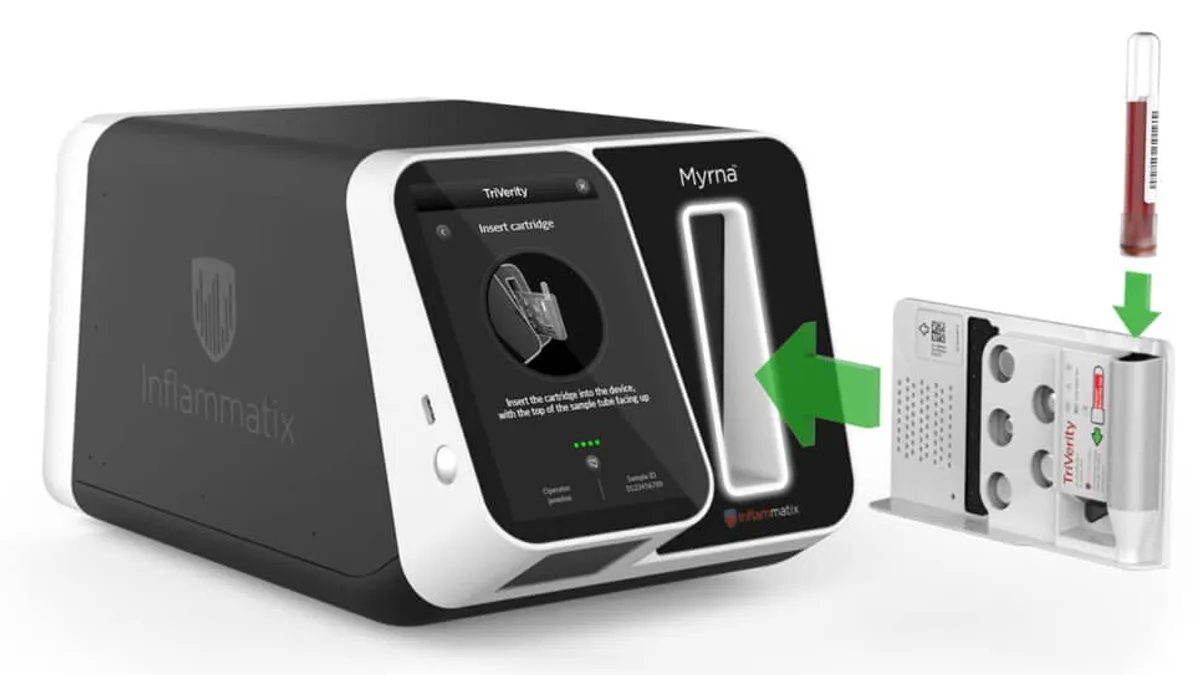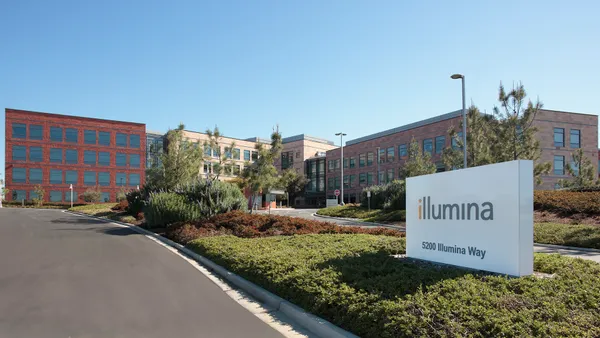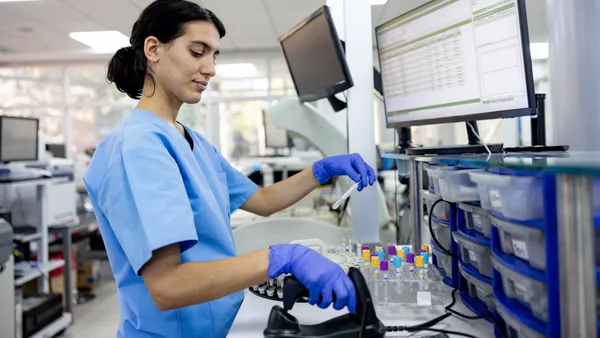Dive Brief:
- Inflammatix raised $57 million to support the regulatory filing and early commercialization of its rapid blood test for acute infection and sepsis.
- The molecular diagnostics company is developing a new approach for earlier detection of acute bacterial infections, viral infections and sepsis based on biomarkers exclusively licensed from Stanford University.
- The latest funding round, announced Thursday, brings Inflammatix’s total private capital raised to more than $200 million. The Sunnyvale, California-based company said it has also received more than $50 million in grants and contracts from government agencies and foundations.
Dive Insight:
Inflammatix’s lead product in development, the TriVerity acute infection and sepsis test system, measures gene expression levels in blood related to immune response. Using machine learning-derived algorithms, the test provides results in about 30 minutes and is designed to help assess the patient’s illness severity and whether treatment in the intensive care unit is needed.
Reaching a diagnosis faster would both save lives and improve hospital resource allocation, Inflammatix asserts.
“We hope to help hospitals improve their performance in terms of complying with sepsis detection and treatment protocols and optimizing patient throughput,” Timothy Sweeney, CEO and co-founder, said in a statement.
The TriVerity system, which includes the Myrna instrument and TriVerity test, was granted the Food and Drug Administration’s breakthrough device designation in November. The designation is intended to speed clearance and Medicare coverage for medical devices.
The company said it recently submitted a regulatory packet to the FDA for the test and hopes to receive clearance from the agency later this year.
“The newly raised funds will help us to expand our commercial team and plan clinical interventional and health economic studies as we await FDA clearance over the coming months,” Sweeney said.
The company’s pipeline also includes tests for emerging infectious diseases, autoimmune diseases, tropical infections, transplant rejection and other conditions.
The Series E financing round was led by Khosla Ventures and Think.Health. Other participants included Northpond Ventures, D1 Capital Partners, Iberis Capital, Vesalius BioCapital, OSF Healthcare and RAW Ventures.










